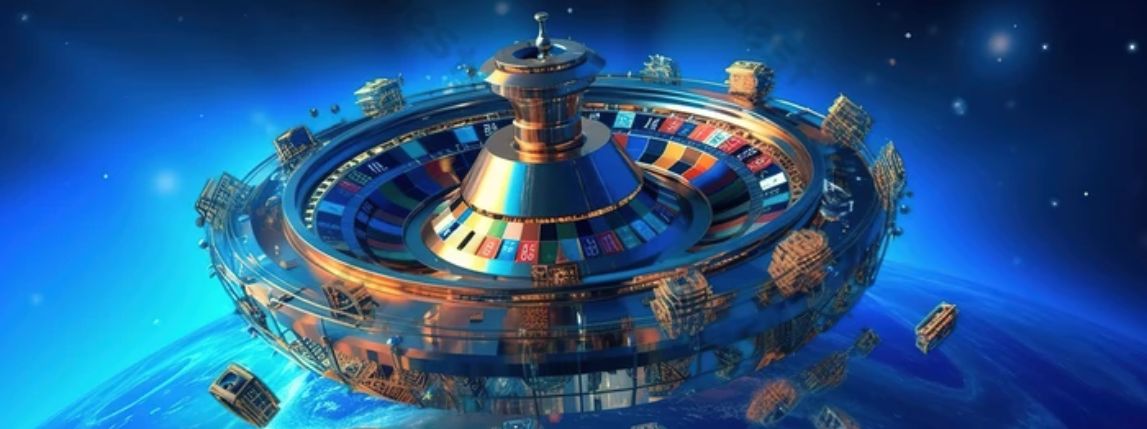Risk is an inherent part of both space exploration and online gambling. These two fields, seemingly unrelated at first glance, share a common thread: the science of probability. In both arenas, understanding and managing risk can mean the difference between success and failure. Time to delve into the fascinating parallels between the probabilities involved in space exploration and online casinos.

Understanding Risk and Probability
Risk is the potential for loss or adverse outcomes, while probability quantifies the likelihood of these outcomes occurring. Players cannot completely avoid risks as the chances are random, but they can at least avoid risks associated with online payments.
Space Exploration: High Stakes and Uncertainties
Space exploration involves navigating the unknown, where even minor miscalculations can lead to catastrophic outcomes. The risks are immense, including equipment failure, human error, and unforeseen cosmic events. To manage these risks, scientists and engineers use probability to predict and mitigate potential failures.
NASA’s Mars rover missions exemplify the application of probability in space exploration. Before launch, extensive simulations and tests are conducted to assess the likelihood of various failure scenarios. For instance, the landing phase of a rover is fraught with risks, including atmospheric entry, parachute deployment, and surface impact. Engineers calculate the probability of success for each phase and develop contingency plans for potential failures. Despite meticulous planning, the risk can never be entirely eliminated, as evidenced by the mixed outcomes of past missions.
Online Gambling: The Realm of Chance
In contrast, online gambling is a world driven by chance, where probability determines the outcomes of games. Whether it’s poker, roulette, or slot machines, each game is governed by mathematical principles that dictate the odds of winning and losing.
Consider the game of online poker. Players make decisions based on the probability of achieving a winning hand, which is calculated using combinations and permutations of cards. Similarly, in online slot machines, random number generators (RNGs) ensure that each spin’s outcome is independent and unpredictable, adhering to the laws of probability.
Comparing Probabilities: Space Exploration vs. Online Gambling
Similarities
- Statistical Analysis: Both fields rely heavily on statistical analysis to predict outcomes and manage risks. In space exploration, this involves complex algorithms and simulations, while in online gambling, it includes odds calculation and game theory.
- Decision-Making: Probabilities guide decision-making processes. In space missions, decisions about launch windows, mission trajectories, and emergency protocols are based on probability assessments. In gambling, players use odds to decide their bets and strategies.
- Risk Management: Both arenas employ risk management strategies. Space agencies develop redundant systems and backup plans, while gamblers use bankroll management and betting systems to minimize losses.
Differences
- Magnitude of Risk: The consequences of failure in space exploration are far more significant than in online gambling. A failed space mission can result in loss of life, enormous financial costs, and setbacks in scientific progress. In contrast, the primary risk in online gambling is financial loss for the individual player.
- Control over Variables: Space exploration often involves uncontrollable external variables, such as cosmic radiation or meteor showers. In online gambling, the environment is controlled, with the primary variable being the randomness inherent in the games.
- Purpose and Outcomes: The goals of space exploration are scientific discovery, technological advancement, and human achievement. Online gambling, on the other hand, is primarily a form of entertainment and a potential source of monetary gain for players.
Practical Applications of Probability
- Enhancing Safety in Space Missions
Understanding and applying probability can enhance the safety and success rate of space missions. For instance, probabilistic risk assessment (PRA) techniques help identify and prioritize potential failure points, allowing engineers to allocate resources and develop solutions more effectively. By continuously updating probability models with new data from missions, space agencies can improve the accuracy of their predictions and the robustness of their designs.
- Informed Gambling Strategies
In online gambling, knowledge of probability empowers players to make informed decisions. By understanding the odds, players can develop strategies that optimize their chances of winning. For example, in blackjack, players can use probability-based strategies like card counting to gain an edge over the house. In poker, understanding the probabilities of different hands can guide betting decisions and bluffing tactics.
We can come up with the verdict that the science of risk and probability is a critical component in both space exploration and online gambling. While the stakes and contexts differ, the underlying principles of probability guide decision-making and risk management in both fields. By comparing these two seemingly disparate activities, we gain a deeper appreciation for the role of probability in navigating uncertainty and achieving success. Whether it’s sending a rover to Mars or placing a bet on a poker game, understanding the science of risk can make all the difference.